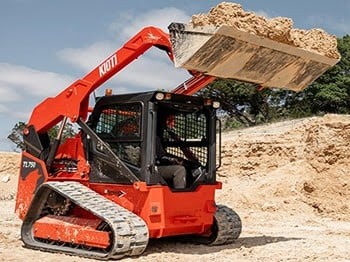Top 7 Mistakes to Avoid When Purchasing Used Farm Machinery
Buying used farm machinery can be a smart way to save money and increase efficiency on your farm. With the right approach, used equipment can offer tremendous value, helping you expand your operations without breaking the bank. However, there are several common mistakes that buyers make when purchasing second-hand equipment, which can lead to unexpected repairs, downtime, or even total loss of investment.
In this blog, we’ll walk through the top 7 mistakes to avoid when purchasing used farm machinery, along with tips to help you make the best choice for your needs. Whether you're a seasoned farmer or a first-time buyer, this guide will help you navigate the used market with confidence.
1. Skipping a Detailed Inspection
One of the biggest — and most costly — mistakes buyers make is purchasing used farm equipment without thoroughly inspecting it. A shiny coat of paint doesn’t mean the machine is in good condition under the hood.
What to do instead:
-
Always check for wear and tear on critical components like hydraulics, engine, tires, and bearings.
-
Look for signs of rust, leaks, or weld repairs that may indicate structural issues.
-
If you're unfamiliar with what to look for, bring a mechanic or experienced operator with you.
Remember, if you're browsing Used Farm Equipment for Sale, don't let appearances deceive you — always inspect before you invest.
2. Not Checking Service Records and Usage History
Many buyers focus only on the machine's current condition but forget to ask about its maintenance and usage history. A well-maintained tractor with more hours may be a better buy than a neglected low-hour machine.
Key things to review:
-
Oil change intervals and maintenance logs
-
Past ownership (single owner vs. multiple)
-
Type of work performed — light-duty vs. heavy-duty use
Service records provide valuable insight into how well the equipment has been cared for and what issues may arise down the road.
3. Buying the Wrong Equipment for Your Needs
It's tempting to go for a great deal on a powerful machine, but bigger isn’t always better. Buying the wrong size or type of equipment can lead to inefficiency and unnecessary fuel or maintenance costs.
Before you buy:
-
Consider your farm size, terrain, and tasks.
-
Match the horsepower and implement compatibility with your needs.
-
Don't overlook transport and storage requirements.
For instance, someone managing a small property doesn't need a 200HP tractor meant for large commercial fields. If you’re searching for Used Tractors for Sale in Texas, prioritize function over flash.
4. Overlooking Parts Availability and Brand Support
Some used machinery — especially older or imported models — may look like a bargain until you realize that replacement parts are hard to find or expensive.
Avoid this by:
-
Sticking with reputable brands that have strong dealer networks in your area.
-
Checking the availability of filters, belts, seals, and other commonly replaced parts.
-
Ask your local dealer about service support before purchasing.
This is especially important for equipment like combines or sprayers with complex components that need regular upkeep.
5. Ignoring Tire Condition and Replacement Costs
Many buyers forget to factor in the cost of tires, which can be surprisingly high, especially for larger tractors and implements. Worn or mismatched tires can affect traction, fuel efficiency, and even operator safety.
What to check:
-
Tread depth and sidewall condition
-
Tire age — rubber degrades over time, even if the tread looks good
-
Size compatibility for duals or specialty applications
New tires can cost thousands, so factor that into your budget when comparing prices.
6. Failing to Test the Equipment
You wouldn’t buy a car without driving it, and the same rule applies to used farm machinery. A quick walkaround isn’t enough.
Make sure to:
-
Start the engine and let it idle
-
Engage PTO and test hydraulics
-
Operate the machine in a field or similar work environment
This hands-on testing helps you catch red flags like sluggish performance, odd noises, or electrical issues.
If you're also interested in machinery beyond the farm, consider that many of the same principles apply to Used Construction Equipment for Sale — inspection and testing are critical.
7. Not Buying from a Trusted Source
Buying equipment from random online listings or unverified sellers can be risky. There’s no guarantee of honesty or recourse if something goes wrong.
To reduce risk:
-
Buy from a reputable dealer with a proven track record.
-
Look for certified pre-owned options with warranties.
-
Ask about trade-in and financing programs.
Dealers often inspect and service their used inventory, giving you more peace of mind than a private sale.
Conclusion: Trust Hill Country Tractor for Reliable Used Equipment
Avoiding these seven mistakes will help you make a smart investment in your next piece of used farm machinery. From detailed inspections to knowing what you really need, a little preparation goes a long way in saving you time, money, and headaches down the road.
At Hill Country Tractor, we specialize in helping farmers and landowners find dependable, high-quality equipment. Whether you're looking for Used Farm Equipment for Sale, Used Construction Equipment for Sale, or Used Tractors for Sale in Texas, we offer a wide selection backed by expert support and fair pricing.
Our experienced team is here to guide you through every step — from choosing the right machine to ongoing service after the sale. Visit our showroom or browse online to see why so many customers trust Hill Country Tractor as their go-to equipment partner.
Make the smart choice. Make it with Hill Country Tractor.
Let me know if you’d like this formatted for WordPress, turned into a downloadable guide, or paired with featured images for social media promotion!


Comments
Post a Comment